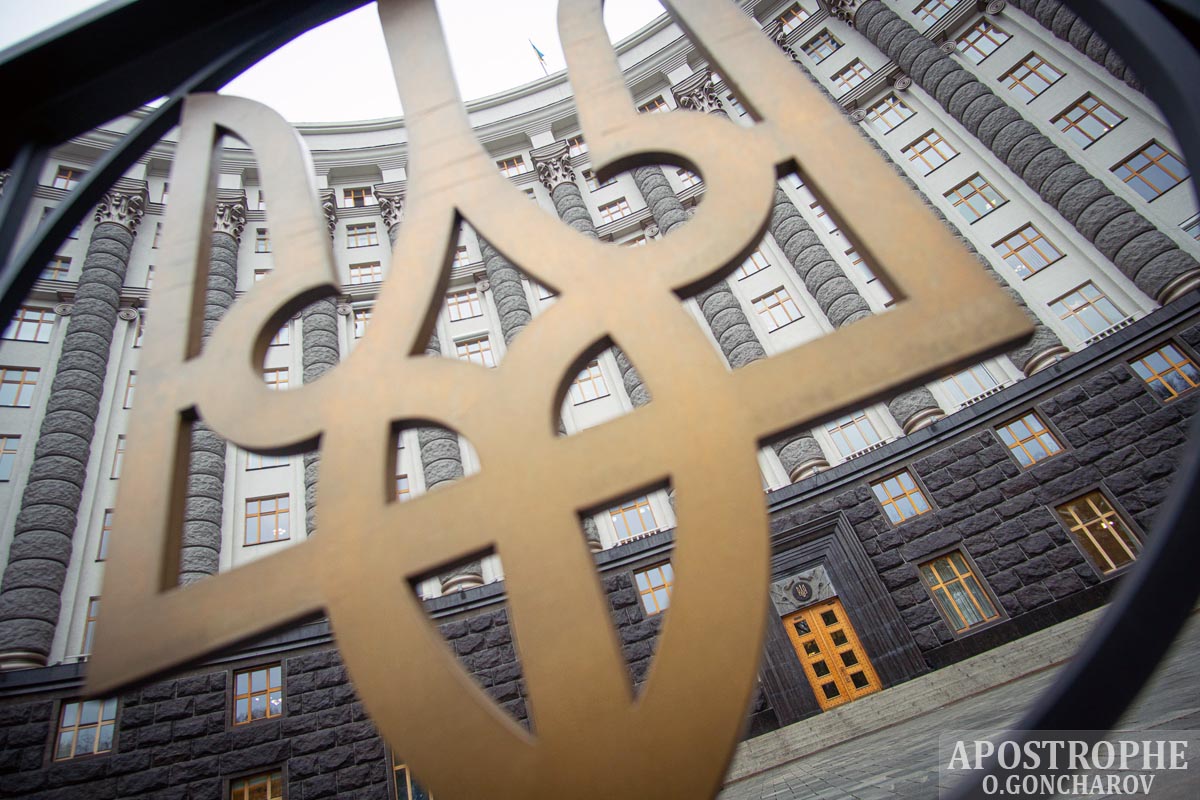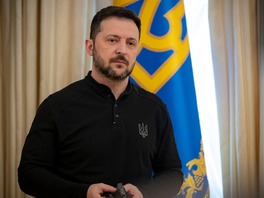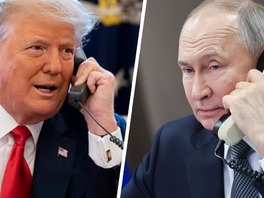2020 was supposed to mark the first practical results of the new government. While we’ve seen some shifts, they were considerably overshadowed by various crises, mostly stemming from the COVID-19 pandemic. The global economic recession, the widespread crisis of democracy (as illustrated by the events surrounding the U.S. presidential election), and the constant disregard for the rule of law, as well as the lack of confidence in the old elites and the unpreparedness of new politicians: all these factors played into 2020 being a less than ideal year for structural and qualitative change. Moreover, the problems of Ukraine’s institutional weakness and the lack of public trust in Ukraine as a state have preserved their relevance. At the same time, Ukraine could have overcome these issues had the government presented a roadmap of changes – a clear vision of the country’s priority goals and ways to achieve them. Ukrainian authorities, however, failed to do so, continuing to operate in the “stimulus – reaction” paradigm and lacking a plausible long-term plan.
Interestingly, despite the drop in Volodymyr Zelensky and his party’s ratings, the year 2020 was characterized by disappointment in the idea of Ukraine’s success as a state rather than in the new government. This concept is evidenced by the sympathies of Ukrainian citizens: feeling let down by new politicians, Ukrainians have not sought solace in the “old” elites either. An akin situation hurts the Ukrainian statehood, as it’s losing the support of its citizens. Ukrainians don’t believe in their country’s success, which constitutes a threatening tendency. Therefore, in 2021, Ukrainian authorities should make regaining the public trust a priority; for instance, they can conclude a new social contract with Ukrainian society (a new Constitution) and present a transparent short-, medium-, and long-term strategy for Ukraine.
The Weakness of State Institutions
The concentration of power in the hands of President Zelensky and his mono-majority, unfortunately, has failed to improve the effectiveness of state institutions. Neither the government, Parliament, nor other state bodies (including but not limited to the Prosecutor General’s Office, SBU, SAPO, NABU, etc.) have executed their functions to the best of their ability. While the judiciary appears more adept, its efficiency still raises a plethora of concerns. This, in turn, means Zelensky and his team are so far failing to convert the unprecedented public support into the efficient work of state mechanisms.
Despite its supposedly leading role in a parliamentary-presidential republic, the Parliament has not established its primacy over other state bodies. The immaturity of the Servant of the People party – including the lack of political knowledge and ideological unity among its members – led to significant polarization of the mono-majority. The division has been amplified by various financial-industrial groups that developed a palpable influence on the MPs. After the current government’s “honeymoon” with Ukrainian society, which had lasted nearly a year, the Servant of the People MPs began actively considering their political future. With this, they became rather sensitive to the oligarchs’ wishes; while political projects come and go, the oligarchs serve as a stable power in Ukrainian politics. Unsure of their own political future, neither the President nor the party’s management could match these connections.
Unable to produce effective state programs and development strategies, the current Cabinet has demonstrated an even greater weakness. Thegovernmentworkswitharatherlimitedagenda, formedbythePresident’sOffice. The President’s Office, in turn, lacks intellectual resources to capture the magnitude of Ukraine’s problems and challenges in-depth.
The Cabinet’s communication with the Parliament is unsatisfactory as well; with the mono-majority, the Parliament should have based its work on the governmental program. In addition, the Cabinet fails to effectively collaborate with primary stakeholders of various public policies, thus resulting in crises and confusion (e.g. the protests of individual entrepreneurs). One may describe the Cabinet's work as one step forward and two steps back. An akin situation is not helping to increase public trust in governmental actions. Overall, the government has not implemented a single structural reform, focusing on extinguishing numerous public policy fires instead. The said course of work freezes the status quo, thus erasing the hopes for change that had driven Ukrainians to elect new faces in 2019.
As before, the President’s Office remains the main decision-making center of Ukraine. The President’s high level of support contributes to the legitimacy of the PO’s decisions, as well as facilitates their relatively effective implementation by the Verkhovna Rada and the government. However, everything is far from faultless: it’s becoming increasingly difficult to gather enough voting votes in the Parliament. The oligarchs’ “arguments” are becoming progressively more powerful than the influence of the Presidential Office. Similar to the Parliament, some of the Cabinet’s areas of work are not subject to the PO. Some security and law enforcement bodies (the police, the State Emergency Service, the State Border Guard Service, and the National Guard), for instance, are fully controlled by Arsen Avakov. Having the resources to halt any attacks on the Ukrainian statehood, Avakov, in turn, serves as a guarantor of stability. Moreover, the Minister of Interior is an experienced political player; it’s unlikely that any governmental rotations would concern his position. Therefore, the influence of the President’s Office is decisive yet not limitless.
 The President's Office
The President's Office
The work inside the President’s Office has not been unified either, having undergone several staff rotations. With this, Andrii Bohdan was replaced by Andrii Yermak, who had then played a role in the dismissal of the Deputy Head of the PO Serhii Trofimov. Trofimov was demoted to an advisory position after local elections proved less successful than planned. As of today, Yermak has dominated the power in the President’s Office, as well as nearly monopolized the influence on President Zelensky. The head of the PO Andrii Yermak and Zelensky’s first aide Serhii Shefir are the closest allies of the President, enjoying the greatest influence on Zelensky.
It’s worth noting that the President’s Office maintains parity between primary oligarchic groups. The President has not prioritized any particular oligarch over the others, trying – albeit sometimes unsuccessfully – to keep an open dialogue with all oligarchic groups. In particular, Kolomoisky, who controls a powerful group inside the Servant of the People faction, is especially prone to conflict. He uses his MP group either to block unprofitable decisions or to convince the government to make concessions in certain areas of interest. Rinat Akhmetov, on the other hand, has been providing the most significant support to Ukrainian authorities, aiding with both media resources and personnel. Pinchuk has also arranged for media help, yet he’s been increasingly distancing himself from Ukrainian politics. Lately, Serhiy Lyovochkin has increased his level of cooperation with the President’s Office, establishing a collaborative dialogue with Andrii Yermak. An agricultural oligarch Andriy Verevsky, who controls the Dovira parliamentary group, has also been active support to the authorities. Dovira often aids the mono-majority during voting. Yurii Kosyuk, another agricultural businessman, has proved himself an ally of the government as well. Additionally, Illya Pavlyuk, whom media platforms often connect with smuggling, has aided the Servant of the People MPs financially and managed some of their campaigns during local elections.
The situation with law enforcement bodies is deficient as well. The Prosecutor General’s Office, SBU, NABU, the Specialized Anti-corruption Prosecution and the State Bureau of Investigations continue conflicting, at the same time failing to show any noticeable results. The replacement of the Prosecutor General has not led to fruition; neither Ryaboshapka nor Venediktova was able to solve high-profile cases. A similar situation concerns the PGO and SBU reforms, which have been stalled. While media platforms sometimes report about the SBU preventing a crime or detaining a suspect, it has failed to react in emergencies (e.g. several hostage situations). The police, in turn, has been the most effective law enforcement body, yet its work still raises a plethora of questions, mostly concerning police brutality (e.g. a woman was beaten and raped in Kagarlyk). At the same time, the State Bureau of Investigations has been close to non-existent. As Ukraine’s partners are not particularly concerned about the SBI, it’s unlikely that the agency shall start working any time soon.
One of the more evident issues is the confrontation between the government and the National Agency on Corruption Prevention; the head of the NABU is in a suspended state after the decision of Ukraine’s Constitutional Court. An akin situation has stemmed from Petro Poroshenko’s destructive position: during his presidency, Poroshenko granted himself the power to appoint and dismiss the head of the NABU despite the lack of similar constitutional functions. The fifth President of Ukraine, most likely, wanted to keep anti-corruption bodies on the hook, thus leaving room for questioning their constitutionality if necessary. The same motives could have led his team to pass laws on criminal liability for illicit enrichment and declaring false information in declarations. With this, Poroshenko consciously laid “legal mines” in the said legislation, allowing him to detonate them if the NABU starts working against the fifth president. The “mines” detonated in 2020, provoking a constitutional crisis and constructing barriers to Ukraine’s cooperation with its Western partners.
It’s worth noting that the Presidential Office’s position on the NABU is controversial. On the one hand, the President has highlighted the necessity of maintaining the independence of the anti-corruption agency, underlining the need to keep Artem Sytnyk in his position. On the other hand, Deputy Head of the President’s Office Oleh Tatarov has a rather antagonistic attitude toward Sytnyk, demanding his dismissal.
Nevertheless, Volodymyr Zelensky’s presidency has marked the new opportunities for NABU to join international cooperation on anti-corruption investigations; the NABU was also granted the right to wiretapping, which the previous government had opposed. In addition, the Anti-Corruption Court of Ukraine was only able to begin working (without any barriers) with the new government.
 NABU Employee
NABU Employee
Overall, one can assess the NABU’s work as ambiguous. While it hasn’t succeeded in imprisoning individuals guilty of corruption, the agency was only able to unblock its work in late 2019. Before that, the Constitutional Court had practically declared amnesty for officials involved in top corruption. The NABU’s work was further complicated by the Constitutional Court’s ruling on the abolition of the e-declarations system. Thus, the CCU’s decision accounted for numerous closed cases and canceled penalties. At the same time, the agency’s current management has gained a plethora of powerful enemies; the reboot of the NABU’s management could help the agency strengthen its work.
The government has also failed to restore public trust in the judiciary. While the Constitutional Court of Ukraine has been the main newsmaker of the year, it’s not a part of the judicial branch and is considered an independent body. Additionally, the authorities failed to reboot the Supreme Council of Justice and the High Qualification Commission of Judges of Ukraine, which was one of the IMF’s conditions for receiving a loan. The President’s Office is currently working on developing a judiciary reform; this process, however, is not public. First, the judges have started receiving a high salary; a district court judge is currently earning around 80 thousand per month, which serves as a palpable stimulus to refrain from taking bribes. Second, the NABU and other law enforcement bodies have started uncovering corruption in courts, which, again, prompts judges to refrain from taking bribes. Both aspects should be upheld in a prospective reform. Overall, in 2020, the judiciary situation has improved, yet it wasn’t enough to regain public trust in the judicial branch.
The COVID-19 Crisis as an Indicator of the State’s Weakness
The COVID-19 pandemic has exposed numerous public administration problems in Ukraine. Undoubtedly, the current government has inherited a heavy legacy, including a nearly destroyed health care system. The laboratory system in Ukraine was completely demolished as well: when the pandemic started, Ukraine had only one state laboratory able to conduct 200 tests per day. Today, Ukraine is administering 70,000 tests daily. Ukraine also had only about 12,000 beds that could accommodate coronavirus patients. Now, the number has increased to 60,000. The state reserve was empty. A similar situation concerned medical equipment and ventilators in particular. Taking into account the starting situation, the government has managed to secure rather significant improvements.
Nevertheless, the authorities’ weak point has been the inconsistency of governmental decisions and the inability to ensure their implementation (for instance, the situation with a supposed 300% bonus to first response workers). Ukraine’s government was also late to introduce an adaptive quarantine that would account for a regional epidemiological situation. Moreover, Ukraine did not succeed in contact tracing and citizen adherence to quarantine restrictions. Another problem was that introducing stricter quarantine restrictions, the Cabinet didn’t offer any business support programs. It only happened after a wave of public backlash. An akin approach further hindered public trust in state institutions, thus providing the opposition with a vast spectrum of tools for criticism.
The government has also failed to propose a functioning plan for economic recovery. It neither communicated with investors nor modernized Ukrainian industries. One can note the creation of a new position – the Minister for Strategic Industries (Oleh Urusky) – as a positive move, signifying the government’s understanding of the importance of industrial development and innovations. However, it’s too early to assess Urusky’s work in this post.
Political Competition in Ukraine
The Servant of the People party continues to dominate Ukrainian politics; Volodymyr Zelensky, in turn, maintains his position as the number one politician in the country. The president’s ratings waver at approximately 30-40%, which is a confidently good result after Zelensky’s first year of presidency. It’s worth noting that one should not compare Zelensky’s current support with his unprecedented 70% vote in a second round of the presidential election. The second round led many to vote against rather than in favor of a particular candidate, thus rendering similar comparisons irrelevant. Zelensky and his party demonstrate decent results throughout the entire country.

Polar opposites Petro Poroshenko and Yurii Boyko, representing Western and Eastern Ukraine respectively, occupy second and third place in presidential ratings. Their support fluctuates at 15-16%. It’s worth noting that Volodymyr Zelensky beats both Poroshenko in the West and Boyko in the East by 8-10%. Yulia Tymoshenko and Ihor Smeshko conclude the top-5 with an average of 10% and 5% accordingly.
In party ratings, Servant of the People continues occupying leading positions with 25-30% support. Between Poroshenko’s European Solidarity and the Opposition Platform – For Life, the scales lean toward the latter. Boyko-Medvedchuk’s party has an 18-20% support, while the ES is at 13-15%. Akin to their leaders, Batkivshchyna’s support constitutes around 10%, and Strength and Honor may count on approximately 5% of support. For the Future is closing in on the passage barrier as well.
As of late 2020, Poroshenko and Medvedchuk’s political forces are the most oppositional to the current government. At the same, both parties would likely have had lower levels of support without one another. Their public rhetoric comprises of mutual hatred, with Poroshenko serving as the main “Ukrainian patriot” and Medvedchuk assuming the role of a pro-Russian enemy. Nevertheless, it was during Poroshenko’s presidency that Medvedchuk was able to return to Ukrainian politics, buy three TV channels and make his businesses flourish. Including Petro Poroshenko’s ability to halt Medvedchuk’s comeback at the time, one may assume the former was interested in his rival’s resurgence. Unfortunately, an akin political game is highly destructive for Ukrainian society, polarizing the public and promoting intolerance.
Yulia Tymoshenko, in turn, assumes an oppositional yet constructive position toward the government. She offers evidence-based criticism, at the same time supporting the ruling party’s positive decisions with her votes. Tymoshenko does not attempt to polarize society; on the other hand, she fosters an open dialogue on economic issues, security, etc. Batkivshchyna has a rather stable support, which led it to second place in local elections (4400 seats in local councils).
Overall, the opposition was counting on 2020 local elections to improve its positions. For the European Solidarity and the Opposition Platform – For Life, Servant of the People’s loss would have served as a solid basis for undermining the political situation, swaying it toward snap parliamentary elections. The plan failed: despite a decrease in the Servants’ ratings, the ruling party has managed to win the highest number of local council seats (6239) and their heads (226). Therefore, the Servant of the People party has maintained its dominant positions. With this, the ruling party has received an array of tools to influence regional policies. While the Platform and ES continue enjoying significant support in the East and the West respectively, Servants represent a more moderate electoral base. Batkivshchyna, in turn, preserves rural votes.
Currently, any speculations regarding early parliamentary elections are irrelevant; the promotion of this narrative is merely a tool of influence utilized by the Opposition Platform – For Life, European Solidarity, and For the Future. It’s worth noting that, had parliamentary elections taken place today, neither of these political forces would have been able to improve its representation in the Parliament. Therefore, it would be fruitless to invest in the new electoral campaign. Moreover, the President so far has no legal grounds to dissolute the Parliament.
In general, 2020 didn’t ignite any new political stars; on the opposite side, Holos has lost most of its support. The Proposition party appears an interesting political project, yet its prospects remain unclear for now.
One of the government’s unsolved problems lies in its relations with local elites that firmly maintain their power in the regions. With this, the government proved unable to form an adequate regional policy, at the same time failing to establish effective political institutions. Without noticeable developments on the regional track, the government risks a permanent crisis of the central vs. local authorities’ relations.





